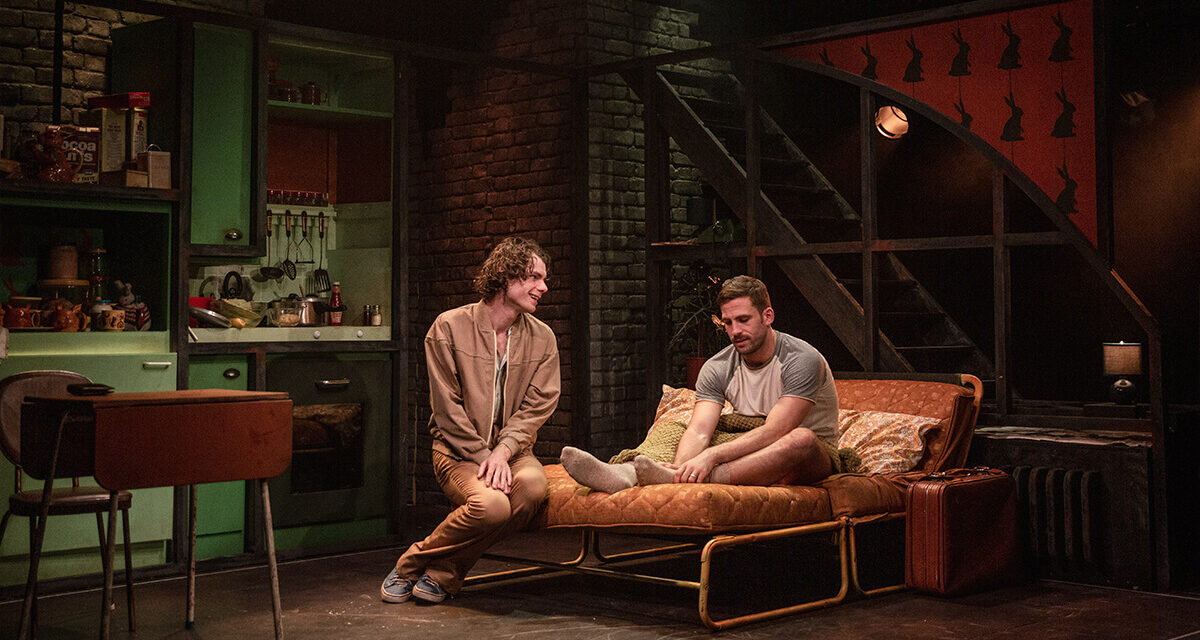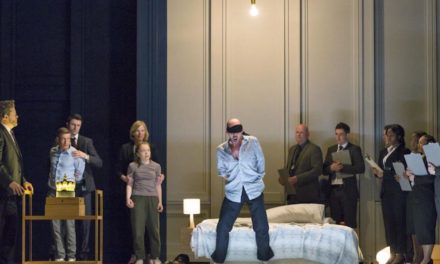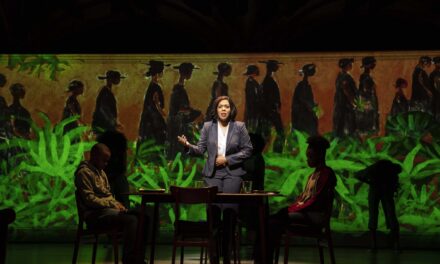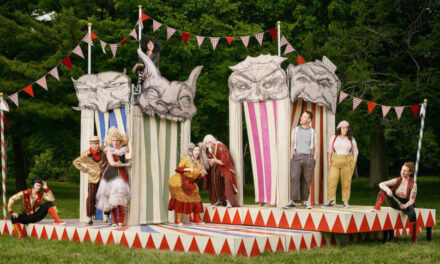The Turbine Theatre opens its doors to London audiences with Drew McOnie’s intimate production of Torch Song, Harvey Fierstein’s trailblazing gay drama from 1982. Whereas Fierstein’s work is originally a trilogy that runs to four hours, the Turbine production presents a substantially pared-down version, which was created by Fierstein himself for an Off-Broadway revival in 2017. The play’s three acts take us through several years in the life of Arnold Beckoff, a gay Jewish man who works as a drag queen and keeps finding himself trapped in thorny webs of desire.
The first act (“The International Stud”) follows Arnold’s tense relationship with Ed, a bisexual man who later leaves Arnold for a woman. In the second (“Fugue in a Nursery”), a year later, Arnold and his new boyfriend Alan visit Ed and his wife for a weekend, which concludes with Ed and Alan sleeping together. The third and longest act (“Widows and Children First!”) takes place in the aftermath of Alan’s demise: Arnold has adopted a gay teenager and welcomes his mother from Florida, who confronts him about his life choices.
On the small stage of the Turbine Theatre, Torch Song gains a warmth and light-heartedness that amplify its pervasive sense of humor. Even though certain details of Arnold’s narrative grow darker, with multiple layers of social oppression responsible for the play’s central tensions, McOnie’s production never loses sight of its upbeat perspective. In fact, much of the third act feels like a TV sitcom, complete with perfectly timed punchlines. That this act also happens to be the most devastating in certain respects should reveal something about the tonal range of Fierstein’s writing.
Matthew Needham’s captivating performance as Arnold motors the whole production: his blend of colorful histrionics and self-critical introspection increases in subtlety, resulting in a finely layered portrayal of this anguished protagonist. He has a way of allowing cheeky exaggerations to coexist peacefully with calmer responses. As Arnold’s mother, Bernice Stegers displays a similar strength in combining the highly theatrical with the painfully sincere. Her high-energy rendering of a woman torn by conflicting convictions uplifts the play’s second half to unexpected heights. There is decent support by Dino Fetscher as a sympathetic, if slightly static, Ed and by Jay Lycurgo as the amicably mischievous David.
Ryan Dawson Laight’s set, consisting primarily of brick walls and steel staircases, lends itself to simple but effective adjustments. Yet the limitations of the space do more to hinder than help the production: in certain scenes, particularly in the third act, actors look visibly crammed on stage, almost yearning to move around and branch out. This sense of spatial restriction lessens the impact with which the play’s fiery confrontations are supposed to land. There is only so much shouting, after all, that a tiny kitchen can accommodate. With its distinct palette for each act, James Whiteside’s neon-heavy lighting somewhat countervails this problem by bringing out the abstract hues of McOnie’s direction. The blue-soaked second act, for instance, where multiple scenes overlap, derives its beguiling effect partially from such stylizations of intimacy.
But despite its considerable silver linings, this is a Torch Song where the stakes rarely feel high enough. Whether it be their attractions or antagonisms, the relationships among the characters, as they are represented on stage, lack an ingredient or two. There is something synthetic about them, something that pulls more from the mind than from the heart. Perhaps Fierstein’s cuts to the original version are to fault for this unevenness. His broad brushstrokes in dealing with narrative and characterization circumvent matters that later turn out to have been important. Alan’s fleeting scenes in the second act would be a case in point: because he is so thinly sketched on stage, one does not know what to do with his crucial imprint on the third act, when he is no longer present. Relatedly, the central relationship between Arnold and Ed never takes off emotionally; there is much talk of love, desire, and friendship, but the audience is barred from feeling the bumps of that rocky terrain, at least in performance.
There is no denying that Torch Song asks resonant questions—of both its characters and its audiences—about the Bermuda Triangle of authenticity, conformity, and companionship in queer lives. With such material at hand, McOnie’s tidy staging could have taken us on a far more affecting journey and left a firmer trail behind.
This post was written by the author in their personal capacity.The opinions expressed in this article are the author’s own and do not reflect the view of The Theatre Times, their staff or collaborators.
This post was written by Mert Dilek.
The views expressed here belong to the author and do not necessarily reflect our views and opinions.


















